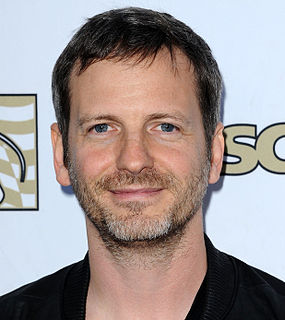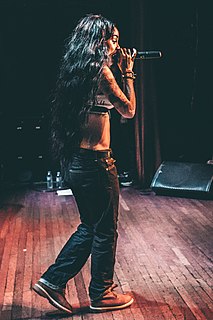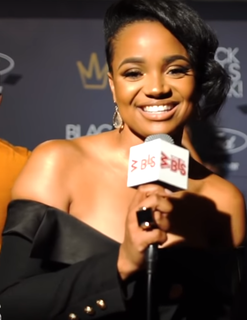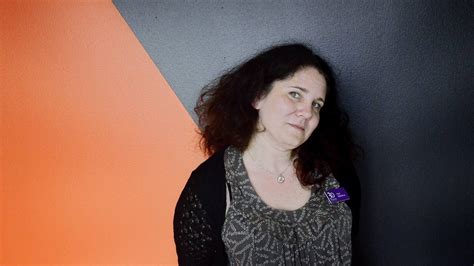A Quote by Dr. Luke
Listen, there's been times in my life like the two years that I only listened to jazz, and probably nothing after 1966. When I went to the Manhattan School of Music, the library didn't have anything after 1966. In order to get good at that, I had to tunnel-vision and focus on that.
Related Quotes
I was in art school, and we had all these random classes. We'd listen to a lot of Bollywood. I'd listen to Spanish music - and I don't even speak Spanish, but Hector Lavoe is amazing - we listened to French music like Edith Piaf. She's tight. I like cool vocal inflections; I like cool sounds. I pretty much listen to anything I think is good.
Woman is God’s supreme creation. Only after the earth had been formed, after the day had been separated from the night, after the waters had been divided from the land, after vegetation and animal life had been created, and after man had been placed on the earth, was woman created; and only then was the work pronounced complete and good.
I love jazz. So to me, there are two main types of jazz. There's dancing jazz, and then there's listening jazz. Listening jazz is like Thelonius Monk or John Coltrane, where it's a listening experience. So that's what I like; I like to make stuff that you listen to. It's not really meant to get you up; it's meant to get your mind focused. That's why you sit and listen to jazz. You dance to big band or whatever, but for the most part, you sit and listen to jazz. I think it comes from that aesthetic, trying to take that jazz listening experience and put it on hip-hop.
In the '50s, audiences accepted a level of artifice that the audiences in 1966 would chuckle at. And the audiences of 1978 would chuckle at what the audience of 1966 said was okay, too. The trick is to try to be way ahead of that curve, so they're not chuckling at your movies 20 years down the line.
It seemed like life was a sort of narrowing tunnel Right when you were born, the tunnel was huge. You could be anything,. Then, like, the absolute second after you were born, the tunnel narrowed down to about half that size....I figured on the day you died, the tunnel would be so narrow, you'd have squeezed yourself in with so many choices, that you just got squashed.
I was born in 1966, at the beginning of the Biafran-Nigerian Civil War, and the war ended after three years. And I was growing up in school, and the federal government didn't want us taught about the history of the war, because they thought it probably would make us generate a new generation of rebels.
I get good references from a wide range of music. Something who's been a good influence in the last few years is Qawwali music. If you listen to a Qawwali singer like Aziz Mian - he's like James Brown. Qawwali is like Pakistani gospel-jazz. It's emotional, but it's also improvised, and it's all about that sacred-and-profane tightrope.

































